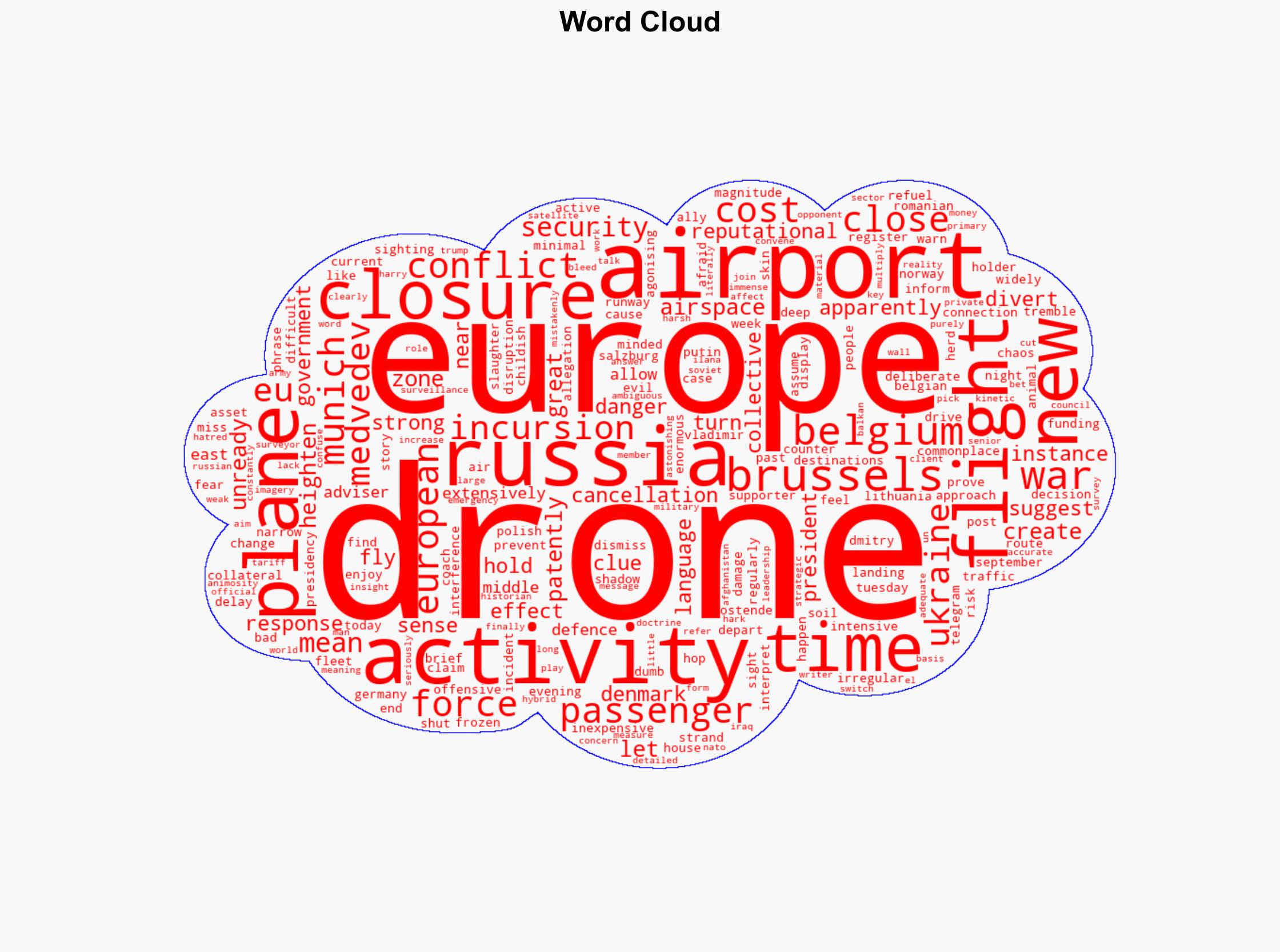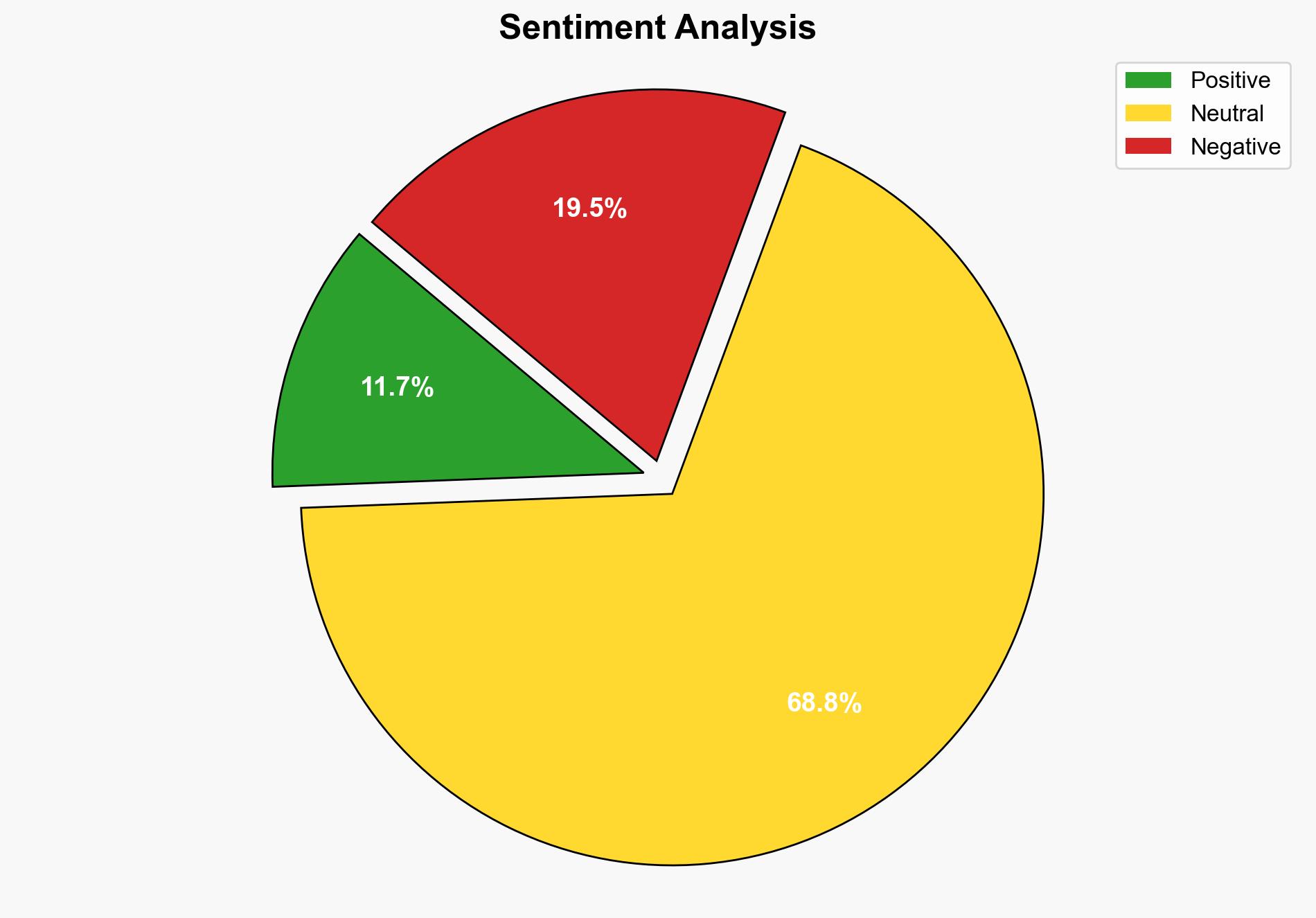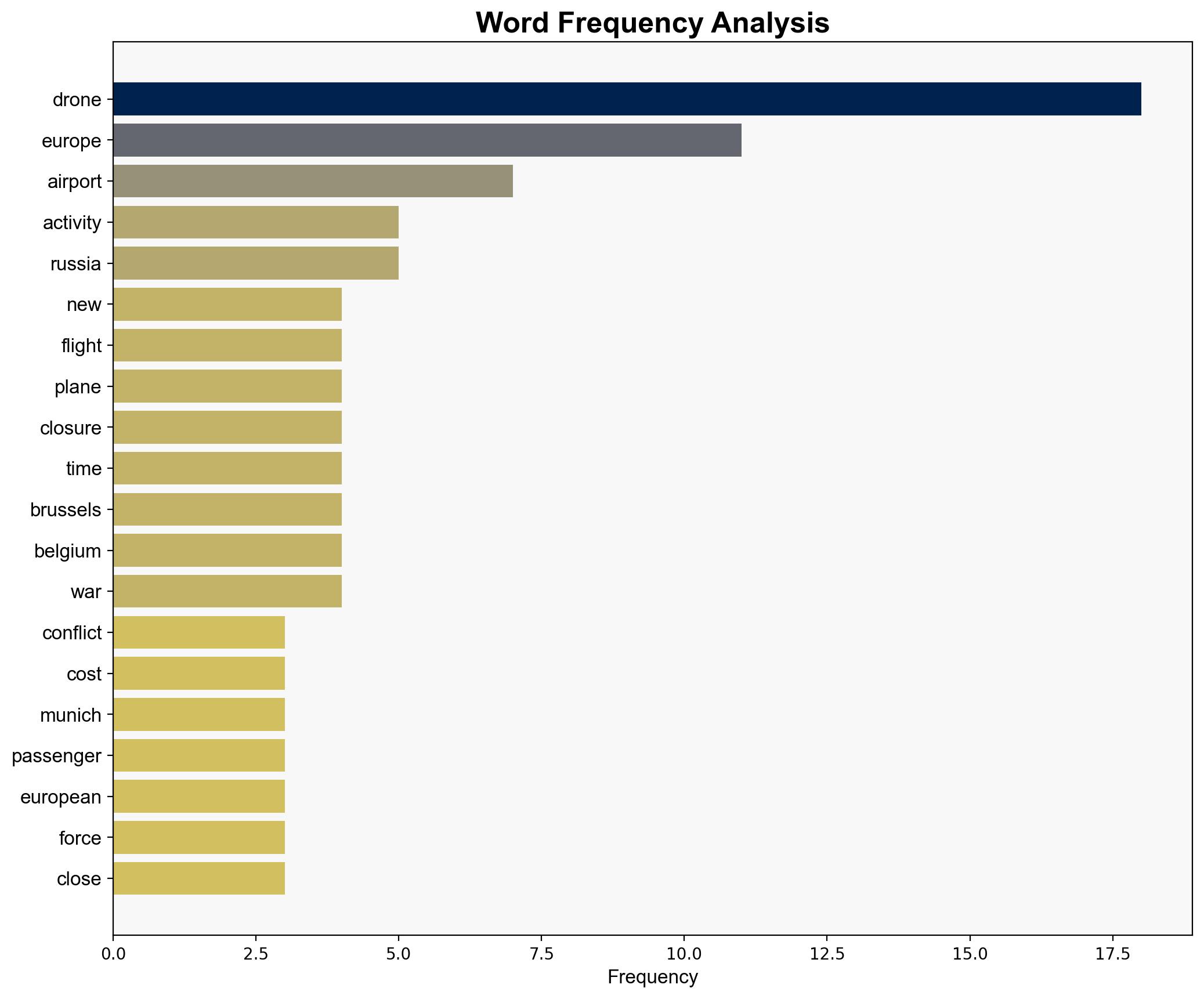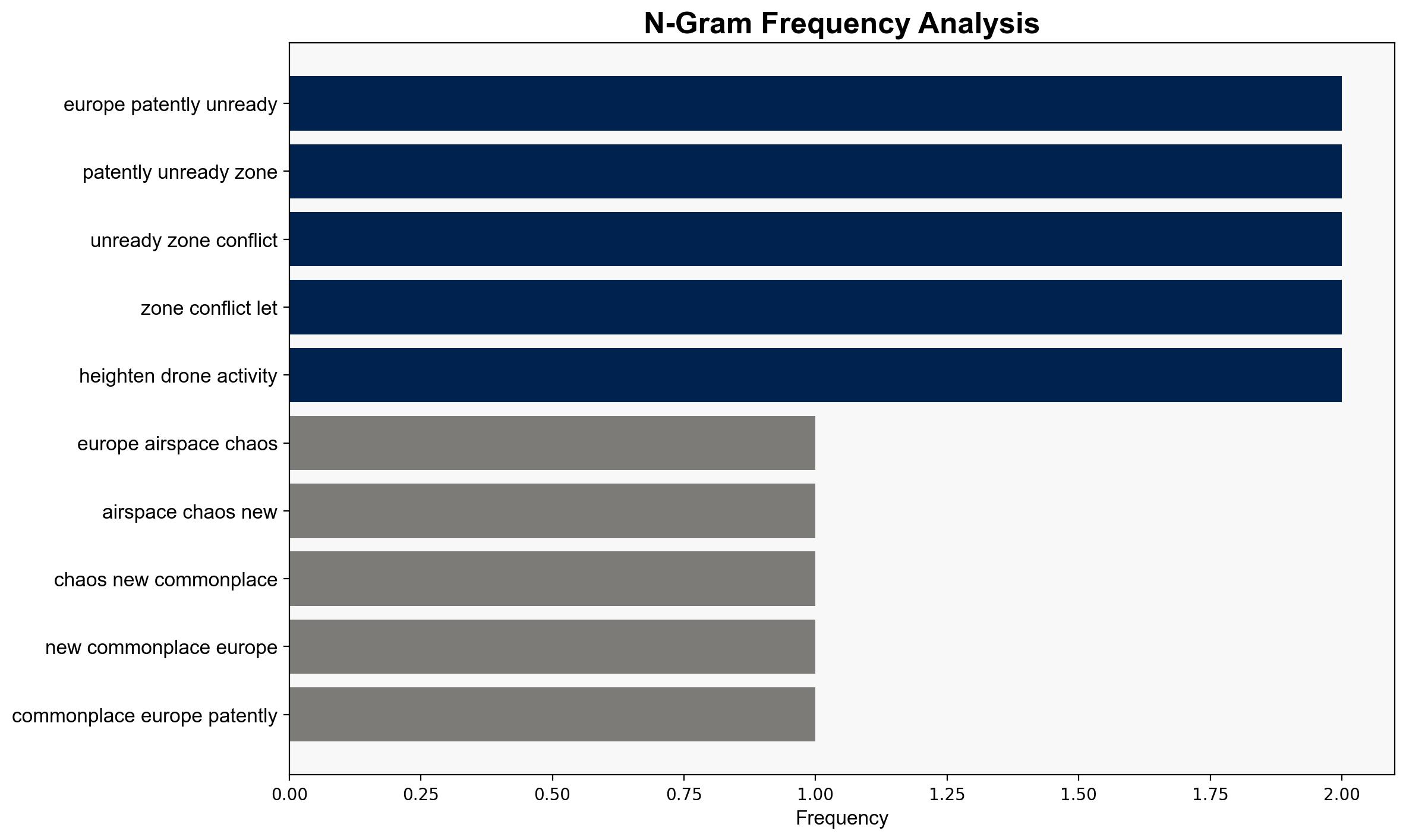Europes airspace chaos the new commonplace – EURACTIV
Published on: 2025-11-07
Intelligence Report: Europe’s Airspace Chaos – The New Commonplace
1. BLUF (Bottom Line Up Front)
The most supported hypothesis is that the drone incursions in European airspace are a deliberate strategy by state actors, potentially Russia, to destabilize and intimidate European nations. This is supported by the pattern of incidents and geopolitical context. Confidence level: Moderate. Recommended action: Enhance regional airspace security measures and increase diplomatic efforts to address potential state-sponsored activities.
2. Competing Hypotheses
1. **State-Sponsored Disruption**: The drone activities are orchestrated by a state actor, likely Russia, to create chaos and exert pressure on European countries, possibly in retaliation for European support to Ukraine.
2. **Non-State Actor Activity**: The drone incidents are the result of non-state actors, such as hobbyists or criminal organizations, exploiting lax regulations and technology proliferation to cause disruption without direct state involvement.
Using Analysis of Competing Hypotheses (ACH), the first hypothesis is better supported due to the geopolitical context, the strategic nature of the disruptions, and the historical precedent of state-sponsored hybrid warfare tactics.
3. Key Assumptions and Red Flags
– **Assumptions**: The assumption that Russia is involved relies on historical behavior and geopolitical tensions. The hypothesis assumes that the pattern of drone activity aligns with strategic objectives rather than random acts.
– **Red Flags**: Lack of concrete evidence directly linking state actors to the drone activities. Potential cognitive bias in attributing actions to Russia due to existing tensions.
– **Inconsistent Data**: Discrepancies in drone sightings and the varying impact on different airports suggest possible gaps in reporting or detection capabilities.
4. Implications and Strategic Risks
– **Economic Impact**: Continued disruptions could lead to significant economic losses for the aviation industry and related sectors.
– **Geopolitical Tensions**: Escalation of drone activities could heighten tensions between Europe and Russia, potentially leading to broader conflicts.
– **Security Vulnerabilities**: Reveals weaknesses in European airspace security and response capabilities, necessitating urgent improvements.
– **Psychological Impact**: Persistent disruptions could erode public confidence in air travel safety and government ability to protect national airspace.
5. Recommendations and Outlook
- Enhance airspace monitoring and response capabilities through investment in technology and international cooperation.
- Engage in diplomatic dialogue with Russia to address concerns and reduce tensions.
- Implement stricter regulations and enforcement on drone usage to mitigate non-state actor threats.
- Scenario Projections:
- **Best Case**: Improved security measures deter further incidents, and diplomatic efforts ease tensions.
- **Worst Case**: Escalation leads to broader geopolitical conflict and significant economic disruption.
- **Most Likely**: Continued sporadic incidents with gradual improvements in response and security measures.
6. Key Individuals and Entities
– Vladimir Putin
– Dmitry Medvedev
– Ilana Bet-El
7. Thematic Tags
national security threats, cybersecurity, counter-terrorism, regional focus





